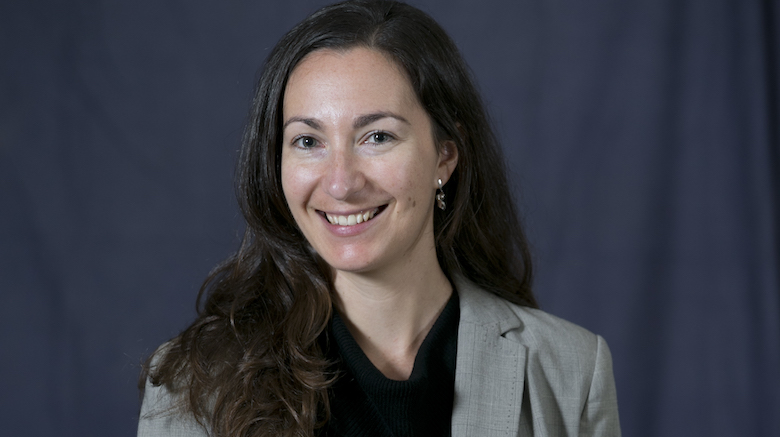Kestrel Perez, Ph.D., is reeling students into the field of marine science.
Dr. Perez, a marine scientist and an associate professor of biology at SJC Brooklyn, constantly has students conducting hands-on experiments in the Burns Hall laboratory. The biology students can assist her in one of her experiments or piggy-back off her experiment and conduct their own research.
“I love it,” Dr. Perez said of working with students in the laboratory. “A lot of the students, oftentimes, have never worked with fish before or never worked with living organisms before, so together they learned how to keep everything healthy and maintained ideal water quality — it’s very hands-on. They love it, so it’s very encouraging to me.”
Dr. Perez is a published researcher and focuses most of her time studying larvae and fish conservation.
She collects the larvae she studies at the campus lab — including the Atlantic silverside, mummychug and sheepshead minnow — from places like the Great South Bay and Jamaica Bay. To do this, she enlists the help of an undergraduate helper.
Together, the professor-student duo walk into the water wearing waders and pull a seine net through the bay to collect the little fish. Then they examine the fish caught in the net, in order to only bring back the exact species of fish they want to study.
At the laboratory, they give the fish time to acclimate to the lab conditions before they study their habits.
“I study this stage of fish because the fish will produce lots of eggs, but 99 percent of larvae don’t survive to become adults,” Dr. Perez explained. “So if you can figure out what factors are causing those 99 percent of larvae to die, it can have a big impact on the conservation of a population.”
Marine Biology Inspires Students
Undergraduate students who help Dr. Perez with her experiments learn first-hand what it’s like to be a marine biologist.
Inside the laboratory, Dr. Perez enlists the help of students to tend to the fish. They help her feed the fish — the larvae only eat live food because that’s what they consume in the wild — and observe the fish, looking out for changes in things like growth rate and swimming abilities. They also monitored the temperature of the water and its salinity.
Sashoy Milton, a biology major who graduated in May, was among the students who helped Dr. Perez collect data in the laboratory. Milton later worked with Dr. Perez to use the same laboratory to conduct her own research on feed efficiency — which she presented at the Undergraduate Research Symposium as a junior in 2019. With Dr. Perez’s guidance, Milton received a research position at SUNY Upstate during the summer of 2019 and secured a research grant to continue studying the topic in her senior year.
“You learn better than in the classroom,” Milton said of the hands-on experience in the lab. “In the lab, I can apply all the knowledge I learned in the classroom.”
She continued: “Dr. Perez is super nice and super helpful. She is always available when I need her and sends me articles related to the work I am doing that she thinks will be useful.”
Milton plans to continue her education, eventually getting her Ph.D. in toxicology — a scientific discipline she was introduced to by Dr. Perez.
A World of Opportunity
Working in the laboratory with Dr. Perez isn’t the only way to get first-hand marine science experience at SJC Brooklyn.
Students who take Field Studies in Ecology (BIO 280) with Dr. Perez have joined a global studies field trip for hands-on experience. In March 2019, students from the class traveled to Costa Rica, where they hiked through tropical rain forests and cloud forests, spotting monkeys, frogs, sloths and other animals. They also snorkeled in the coral reefs.
“The students absolutely loved it, and we would love to do it again,” Dr. Perez said of the Costa Rica trip. “It was just an action-packed time there.”

